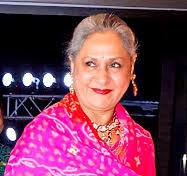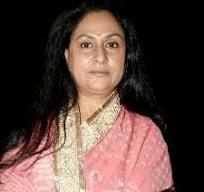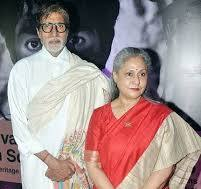Jaya Bachchan is a prominent Indian actress and politician, known for her impressive body of work in the Hindi film industry as well as her influential role in Indian politics. Let’s delve into her life and career in detail.
#EarlyLifeAndBackground
Jaya Bachchan, née Bhaduri, was born on April 9, 1948, in Jabalpur, Madhya Pradesh, India. She hailed from a Bengali family with strong cultural roots. Her father, Taroon Kumar Bhaduri, was a renowned journalist, writer, and stage artist, which fostered a deep appreciation for the arts within the family. Jaya was drawn to acting at a young age, leading her to pursue a career in films. She enrolled at the prestigious Film and Television Institute of India (FTII) in Pune, where she trained under the guidance of some of the best in the industry, honing her skills in acting.
Table of Contents
#EntryIntoBollywood
Jaya Bachchan’s entry into Bollywood was marked by her debut in Satyajit Ray’s Bengali film Mahanagar (1963) as a teenager, which set the stage for her illustrious career. However, it was her performance in Hrishikesh Mukherjee’s Guddi (1971) that made her a household name in Hindi cinema. In Guddi, Jaya portrayed the character of a young girl who is infatuated with a film star, a role that resonated with audiences across India. Her portrayal was lauded for its authenticity and simplicity, establishing her as an actress with a natural flair for emotive performances.

#VersatilityAndCriticalAcclaim
Throughout the 1970s, Jaya Bachchan demonstrated her versatility as an actress by taking on a wide range of roles that showcased her ability to embody different characters with ease. In films like Koshish (1972), she portrayed the struggles of a mute couple, earning critical acclaim for her sensitive and nuanced performance. Her collaboration with Hrishikesh Mukherjee continued to be fruitful, with films like Bawarchi (1972) and Abhimaan (1973), where she starred opposite her husband, Amitabh Bachchan. Abhimaan explored the complexities of marital relationships, with Jaya’s portrayal of a successful singer facing professional jealousy from her husband being particularly memorable.
Jaya also starred in Zanjeer (1973), a film that marked the beginning of Amitabh Bachchan’s journey as the “Angry Young Man” of Bollywood. While the film was pivotal for Amitabh’s career, Jaya’s role as Mala, a street performer, was crucial in grounding the film’s emotional narrative. Her performances in these films demonstrated her ability to convey a wide array of emotions, from joy to sorrow, with remarkable depth.

#PartnershipWithAmitabhBachchan
Jaya Bachchan’s on-screen and off-screen partnership with Amitabh Bachchan is one of the most celebrated in Indian cinema. The couple first met at the Film and Television Institute of India, where Jaya was a student. They went on to star in several films together, including Zanjeer, Chupke Chupke (1975), Mili (1975), and Sholay (1975). Their chemistry on-screen was palpable, contributing to the success of these films.
Off-screen, their relationship blossomed into marriage on June 3, 1973. Despite the challenges of maintaining a personal life under the public gaze, Jaya and Amitabh managed to build a strong and enduring partnership, raising two children, Shweta Bachchan and Abhishek Bachchan. Jaya took a hiatus from acting after the birth of her children to focus on her family, a decision that reflected her commitment to balancing her professional and personal life.

#ReturnToCinema
Jaya Bachchan made a notable return to the silver screen in the late 1990s, after a nearly two-decade-long hiatus. She starred in Hazaar Chaurasi Ki Maa (1998), directed by Govind Nihalani, where she played a mother who discovers her son’s involvement in the Naxalite movement. Her portrayal of a mother grappling with grief and disillusionment earned her widespread critical acclaimacclai
In 2001, Jaya was seen in Karan Johar’s Kabhi Khushi Kabhie Gham, where she played the role of Nandini Raichand, the matriarch of a wealthy family. The film was a massive commercial success, and Jaya’s performance was praised for its warmth and emotional depth. She continued to take on selective roles in the following years, including in films like Kal Ho Naa Ho (2003) and Laaga Chunari Mein Daag (2007), often portraying characters that exuded grace and strength.
#ForayIntoPolitics
Parallel to her acting career, Jaya Bachchan also ventured into politics. She joined the Samajwadi Party and was elected as a Member of Parliament in the Rajya Sabha, the upper house of the Indian Parliament, in 2004. Her entry into politics was seen as a natural extension of her deep concern for social issues, particularly those related to women and children.
Jaya has been an outspoken advocate for women’s rights and has used her platform to address issues such as gender inequality, safety of women, and the importance of education. Her contributions in the Rajya Sabha have been marked by her passionate speeches and dedication to the causes she believes in. Despite facing challenges in the political arena, Jaya has remained committed to her role as a public servant, balancing it with her responsibilities as a mother, wife, and actress.
#LegacyAndInfluence
Jaya Bachchan’s legacy in Indian cinema and politics is significant. She is revered not only for her remarkable performances but also for her dignity and grace in handling her public life. In an industry often dominated by male actors, Jaya carved out a niche for herself as a strong female lead, known for her intelligence and depth as an actress. Her contributions to Indian cinema have been recognized with several awards, including the Padma Shri, India’s fourth-highest civilian honor, which she received in 1991
indianfastearning.comJaya Bachchan Once Lost Cool at Arshad Warsi; He Recalls, ‘She Said, Keep Your Opinions to Yourself’ 2024 wonderful
#Conclusion
Jaya Bachchan’s multifaceted career as an actress and politician has left an indelible mark on Indian society. She has not only entertained audiences with her powerful performances but has also contributed to shaping the discourse on important social issues through her work in politics. As she continues to be an active figure in both fields, Jaya remains an enduring symbol of grace, strength, and talent in the ever-evolving landscape of Indian cinema and politics.
www.utube.comhttps://www.youtube.com/watch?v=6BWAUjV8mdk&pp=ygUNSmF5YSBCYWNoY2hhbg%3D%3D







